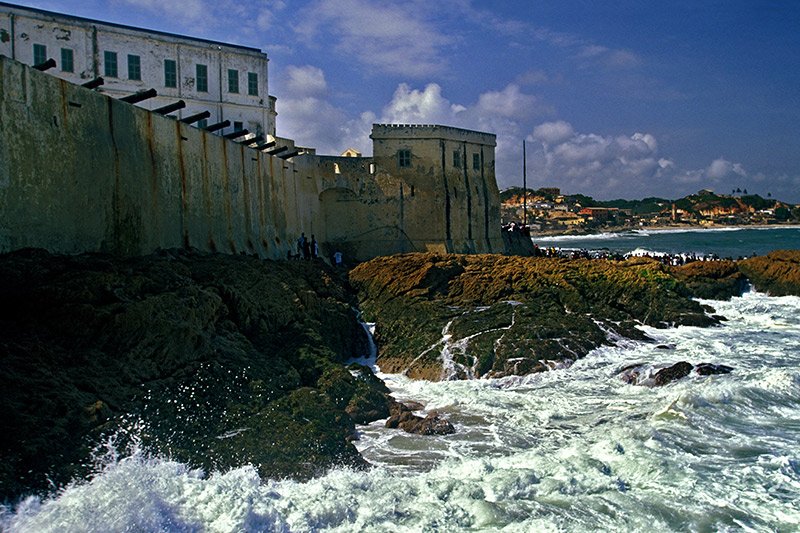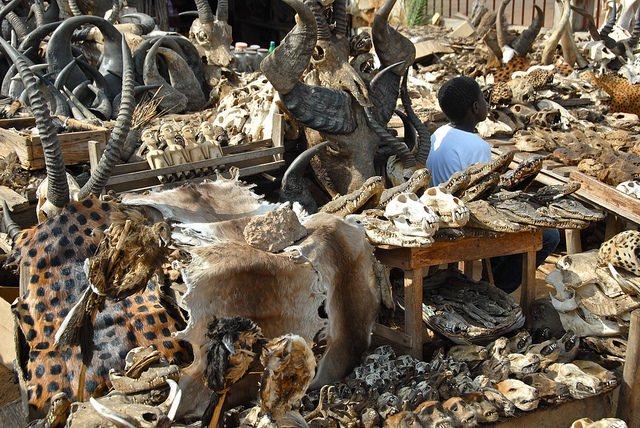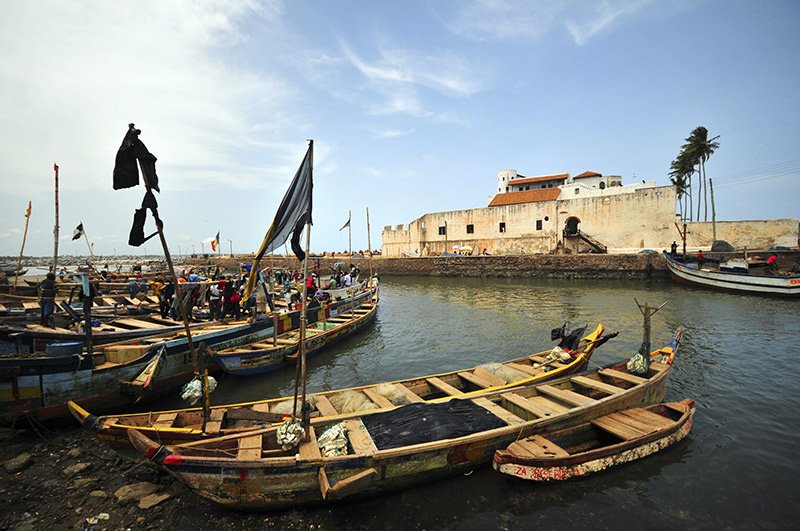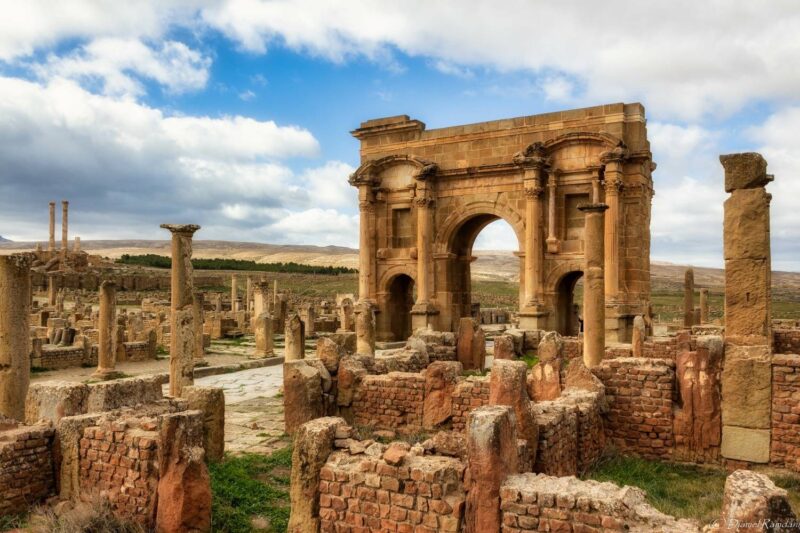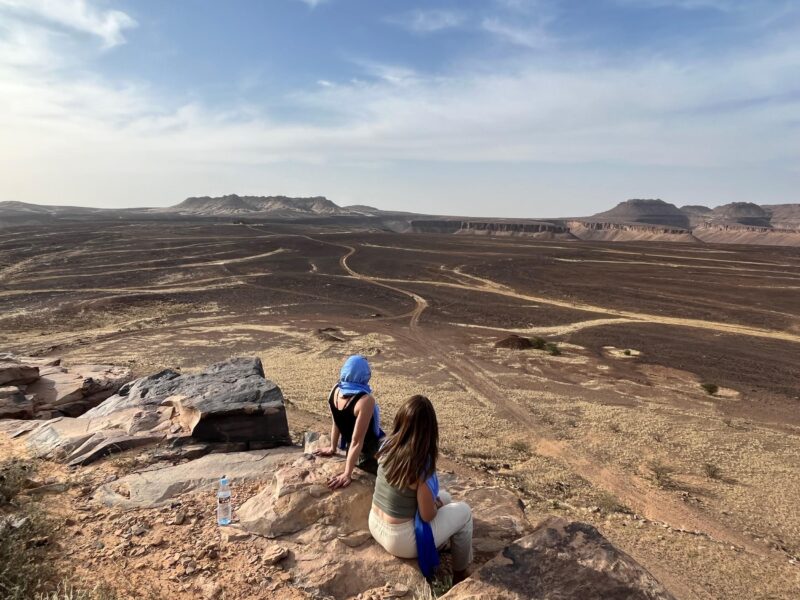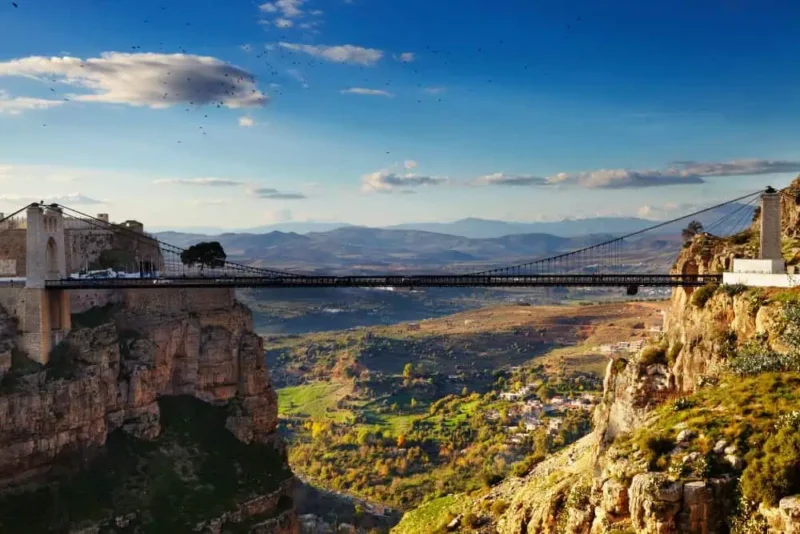| Tour Code | Start | End | Trip Status | Pricing Per person |
|---|---|---|---|---|
| GVF/080126 |
Jan 08, 2026
Thursday |
Jan 23, 2026
Friday |
Full |
£3,799.00
Single Room Supplement: £495.00 |
| GVF/080127 |
Jan 08, 2027
Friday |
Jan 23, 2027
Saturday |
Guaranteed |
£3,799.00
Single Room Supplement: £495.00 |
Ghana, Togo and Benin Voodoo Festival
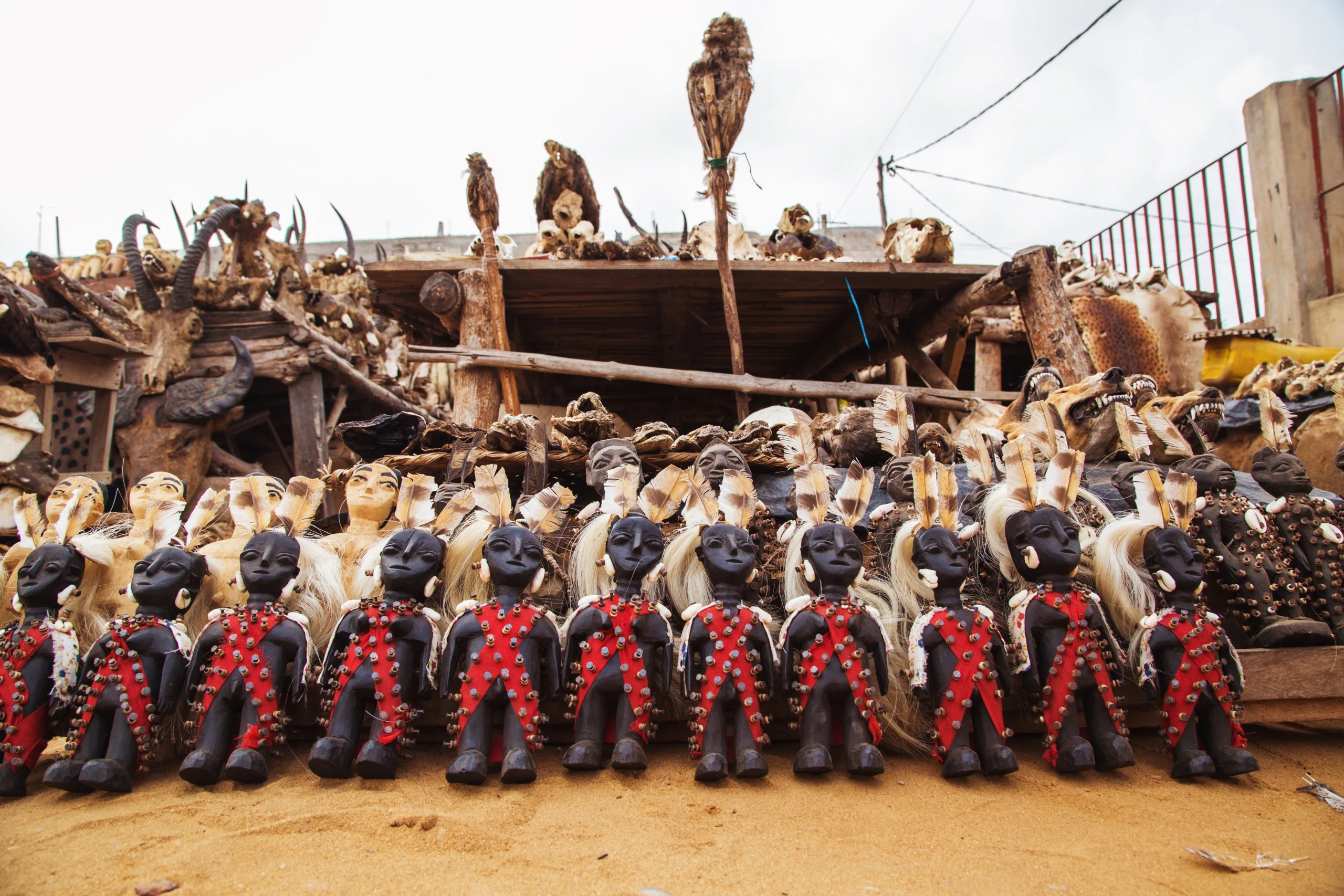
A journey to the spiritual heart of West Africa, where myth, religion and reality intertwine to create an intoxicating blend of extraordinary experiences. Stretching from the dusty borderlands of the north to the tropical coast in the south, Ghana, Togo and Benin encapsulate all that is special about West Africa, with great scenery and wildlife complemented by a joyous and exuberant people who will make you feel welcome from the moment you arrive. Starting in Cotonou, we explore the lively capital of Porto-Novo and the stilt village of Ganvie before heading to Ouidah. Here we witness one of the region’s most incredible cultural experiences, the annual festival of voodoo, where people perform unique rituals and ceremonies in devotion to ancient gods, and where you can expect to bump into the earthly manifestations of voodoo spirits. We learn about the history of the region in the once powerful kingdom of Abomey, discover the fortified houses of the Tamberma people, and visit Lome with its bizarre fetish market. Crossing into Ghana’s vibrant landscapes and cultural heritage, we travel to the heart of the Ashanti kingdom in Kumasi. Finally we end up at Ghana’s coast, where we visit the castles of the first Europeans to reach these shores and relax on the beach. Along the way, you’ll also experience the charm of Benin’s lesser-known destinations, uncovering the true soul of West Africa.
Arrival and departure transfers
Overland transport throughout with professional driver
All accommodation
Services of English-speaking guide / tour leader
Meals as listed, B – Breakfast, L – Lunch, D – Dinner
Entrance fees for sites listed as part of the itinerary
International flights (, contact , us, for expert advice and a quote)
Any airport taxes
Travel Insurance
Visa – when required
Drinks
Items of personal nature
Tips (Discretionary)
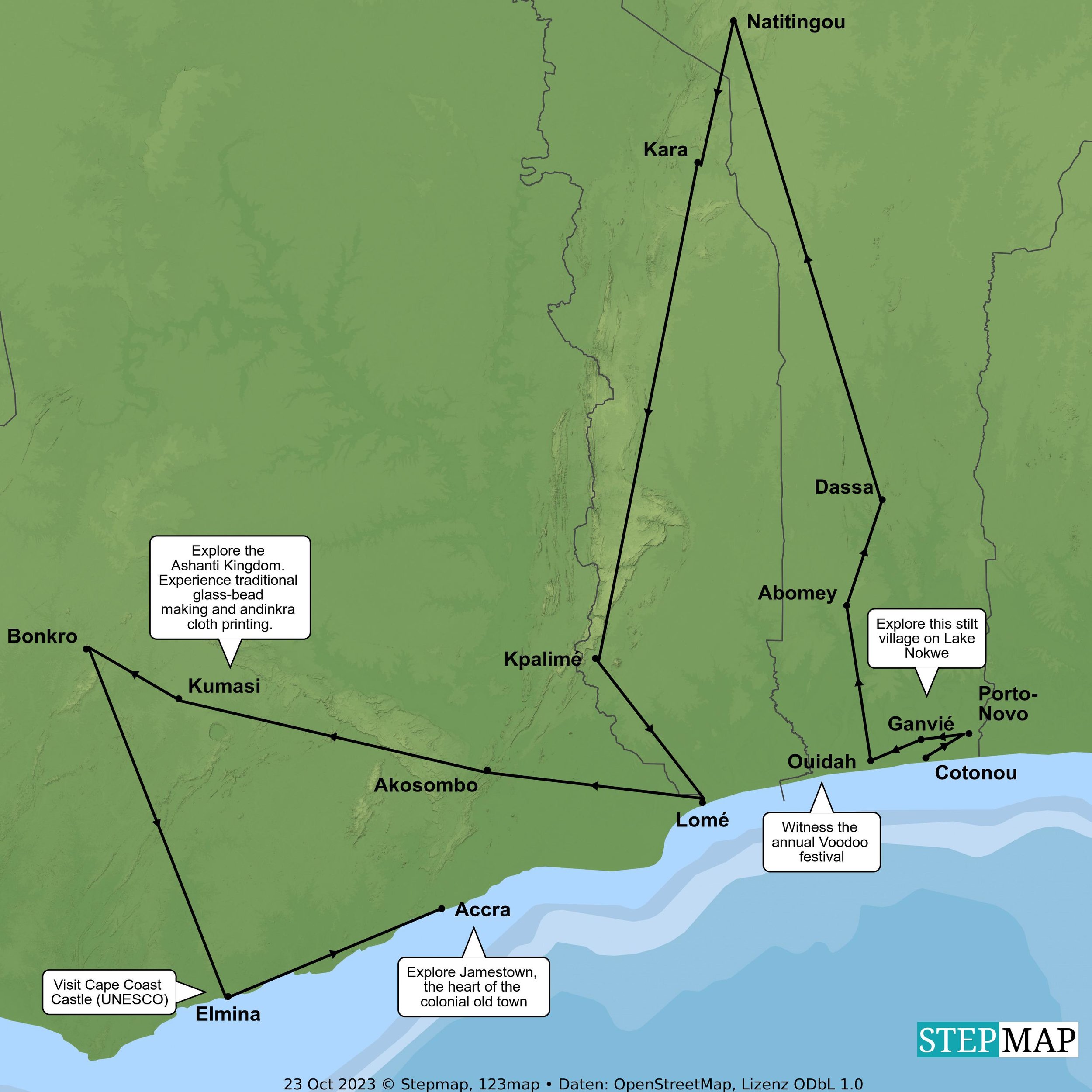
Experience a 16-day cultural odyssey through Benin, Togo guided tours, and Ghana. Begin in Cotonou, exploring Adjarra’s crafts and Porto-Novo’s royal heritage, then drift through Ganvie’s stilt village. Witness Benin’s vibrant Voodoo Festival in Ouidah and tour Abomey’s powerful Dahomey legacy. Discover traditional villages, Voodoo shrines, and the UNESCO-listed mud houses of Koutammakou. Journey through scenic Togo to Ghana’s Akosombo, Kumasi’s Ashanti culture, and Cape Coast’s poignant slave history. Participate in bead-making, batik workshops, and a rainforest canopy walk in Kakum. End in Accra exploring markets, art, and Ghanaian traditions before departing.
Ganvie Stilt Village
Cruise through this unique lake settlement, accessible only by boat, and witness daily life on water.
Ouidah Voodoo Festival
Experience West Africa’s largest Voodoo celebration, with dramatic rituals, dances, and cultural performances.
Ashanti Kingdom in Kumasi
Explore the cultural heart of Ghana with visits to the royal palace, vibrant markets, and traditional cloth-making villages.
Cape Coast Castle
A powerful visit to a UNESCO World Heritage site, tracing the harrowing journey of enslaved Africans.
Kakum National Park Canopy Walk
Walk among the treetops on one of the world’s longest and highest rope bridges in a lush rainforest setting.
Download the Information Pack
To download the tour full dossier, which includes a complete day-by-day itinerary breakdown and detailed tour information, fill in the details below.

Foreign Office Travel Warnings Before booking your tour, please familiarise yourself with the country specific information provided by the UK’s Foreign, Commonwealth and Development Office (FCDO) – www.gov.uk/foreign-travel-advice. This includes important information such as latest immigration requirements, and details of any travel advisories. We constantly monitor the advice posted by the FCDO. In particular we will always advise clients of any travel warnings. At present there are no warnings against travel to the parts of Ghana that we visit on this tour. Please feel free to contact us should you have any specific concerns or would like to know in detail what measures are being taken to ensure visits remain trouble free and without incident. It should be noted that this information applies to British citizens. Other nationals are asked to check the current position of their respective government. Visa Information At the time of writing British, US and Australian nationals require a visa for a tourist visit to Ghana, Togo and Benin. For further details please visit the applicable website shown below. British Nationals – www.gov.uk/foreign-travel-advice US Nationals – travel.state.gov/content/travel/en/international-travel.html Australian Nationals – www.smartraveller.gov.au Other nationals should check the latest requirements with the authorities in their home country, or with the destination’s nearest embassy or consulate. Should you require any documentation to support a visa application, such as a letter of invitation, upon request this will be provided by Undiscovered Destinations after receipt of your balance payment. As it is the travellers’ responsibility to ensure that they meet all entry requirements it is essential that you check the rules and any other conditions at the time of booking and again when making your balance payment. In addition, we would strongly advise that you make a final check around two weeks before your arrival. This is important as requirements can change at short notice. Undiscovered Destinations, when possible, will provide guidance about entry rules, but in the first instance please contact the relevant authorities, including the applicable embassy or consulate for assistance. Passports It is your responsibility to ensure that you are in possession of a full passport, valid for at least six months after the date of return to your country. We strongly advise that your passport contains a minimum of two blank pages, as this may be a requirement of the local immigration authorities. In addition, certain countries will stipulate that the two blank pages are opposite each other. If you are unable to meet these requirements, you may be refused boarding by your airline or denied entry by the immigration authorities. For specific information about the requirements for your destination please check with the country’s embassy or consulate. Alternatively, UK citizens can visit www.gov.uk/foreign-travel-advice. Vaccinations & Protection As with travel to most parts of Africa, we strongly recommend that you contact your doctor’s surgery or a specialist travel clinic for up-to-date information, advice, and the necessary vaccinations. For a visit of less than one month, almost certainly you will be advised to have immunisations against the following: Diphtheria and Tetanus, Hepatitis A, Typhoid, Meningitis. The use of a DEET-containing insect repellent is highly recommended. The legal status and regulation of some medicines prescribed or purchased in your home country can be different in other countries. If you’re travelling with prescription or over-the-counter medicine, read this guidance from NaTHNaC on best practice when travelling with medicines. For further information on the legal status of a specific medicine, you’ll need to contact the embassy, high commission or consulate of the country or territory you’re travelling to. Travel Insurance It is a condition of booking with Undiscovered Destinations that you have adequate valid travel insurance. It is your responsibility to arrange appropriate travel insurance and ensure you have read and understood the full terms and conditions of your travel insurance policy to ensure that you are covered for all activities you intend to undertake whilst on the tour, including all optional activities. Your Insurance Policy must fully cover you for medical expenses (including cover for Covid-19 conditions) and emergency repatriation to your home country and be valid for the entire duration of your holiday. Local Conditions When travelling to our destinations, many of which are underdeveloped and untouristed by mainstream tourism, a good deal of patience and a sense of humour is an important attribute. This will help you to cope with problems such as ageing or poor infrastructure and when maintenance may not be as high as we would always like. The choice of appropriate accommodation in some towns and cities (particularly the smaller places) can be limited, and standards of both service and maintenance can be less than polished. Guides and other service providers in some of our destinations do not always have the decades of collective practice and experience that their counterparts in more developed countries can draw upon. Although we will always try and resolve any issues as quickly as possible, on occasions there may be some shortcomings which no matter how hard we try will be unavoidable.
